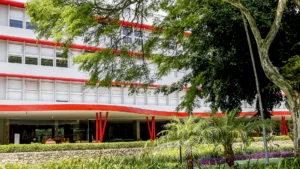A term constantly mentioned when discussing food and production chains, Food Systems comprise the entire journey of a food, from agricultural production to its consumption or disposal. From one end to the other, however, there are several stages, agents and products encompassed by the concept.
FAO, the United Nations Food Agency, goes further: according to the agency, it is necessary to focus on Agri-food Systems, which cover the stages of how food is grown, harvested, processed, packaged, transported, distributed, marketed, purchased, prepared, eaten and disposed of. This definition also includes products that constitute the means of subsistence (for example, forestry, livestock, use of raw materials, biomass to produce biofuels, and fibers), people, activities, investments and choices that have some role in obtaining of these food and agricultural products.
Why is it important to talk about Food Systems?
It is important that we debate Food Systems because the way we produce today will not be sustainable in the long term. The Organization estimates that, by 2050, the world population should reach 9.7 billion people. To feed everyone, it would be necessary to go from the current 8.4 billion tons of food to 13.5 billion – an increase of just over 60%.
Furthermore, the UN points out that, currently, the food production chain generates a waste of 1.3 billion tons per year, while, in a global context, hunger and food insecurity continue at alarming rates.
The organization estimates that more than 800 million people in the world are hungry, and 3 billion do not have money for healthy eating. In Brazil, a survey by the Brazilian Research Network on Sovereignty and Food and Nutritional Security (Rede Penssan), carried out this year, indicates that 20 million Brazilians spend a day or more without having anything to eat. Therefore, rethinking the distribution of these foods is not only necessary, but urgent.
It is important to understand that, in addition to Hunger, the malfunctioning of Food Systems has an impact on different fronts: on health, with overweight, obesity, and chronic diseases; in society, with the increase in social inequalities; in the environment, the destruction of ecosystems and the contribution to global warming.
Get to know iFood initiatives to promote food security in the country
iFood is part of the group of companies that signed the UN Global Compact (United Nations), being the first foodtech in Brazil to join the initiative. By signing the Pact, iFood reaffirms its commitment to aligning its strategies and operations with the principles established by the UN in the areas of food security, sustainability, education It is social inclusion. It is also committed to following the Sustainable Development Goals, that is, the goals set by 193 world leaders to solve the planet's main social and environmental challenges by 2030.


